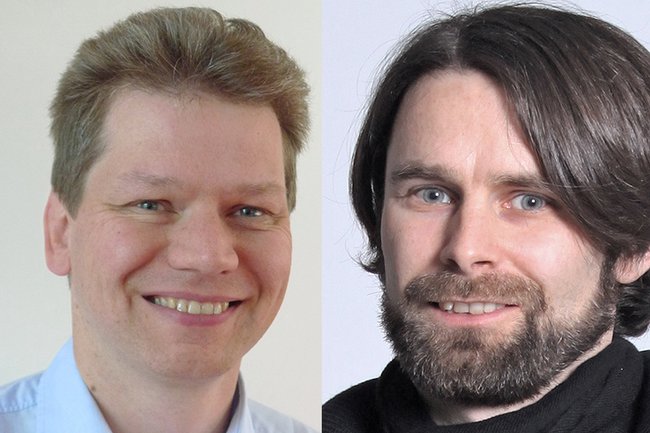“AI Helps Lawyers Save Time“
Interview on the Subject of Legal Technology
Jakob Leissing talks with Tassilo Pellegrini from St. Pölten UAS and Christian Dirschl from Wolters Kluwer about robots, lawyers and the use of artificial intelligence in legal affairs. The following is an excerpt of the interview:
Digitalisation in Legal Affairs
Leissing: When you hear the words digitalisation and Big Data, law is not the first thing that comes to mind. What is happening in terms of digitalisation and the automation of work processes in this sector?
Dirschl: It’s true, the legal market is definitely not a pioneer in the field of digitalisation. Lawyers and other legal experts are paid for their expertise and time. The more experience a person has, the higher the hourly rate that can be charged.
Although this hasn’t changed, pressure is now being applied from two sides: firstly, the amount of data in large cases is often hard or impossible to manage manually. Secondly, the clients exert pressure because they are no longer willing to pay 500 EUR for an initial meeting without benefitting from an adequate service in return.
Legal Technology 3.0
Leissing: Legal Technology is an attempt to automate legal processes. What were the steps of the development that led to Legal Tech 3.0?
Dirschl: One example of Legal Tech 3.0 is Predictive Analytics. Statements regarding future trials are made on the basis of completed processes. For example, the likelihood of a judge deciding in favour or against a certain matter can be estimated in this way.
Limits of Digitalisation
Leissing: Where does the potential of digitalisation in the legal sector end?
Pellegrini: I don’t believe that the technology will ever replace the legal expert – but not because the technology does not have the same level of abstraction or the same analytical precision. One the one hand, it is a matter of trust as well as legal provisions: when it comes to legal advice, people tend to have more confidence in a human expert than a machine.
Legal Decisions – Not from the Machine
When it comes to the transaction of legal business, many legal provisions require a human expert, for example a notary public when buying a house. In this context, the legal decision cannot be taken by a machine.
The Potential of Data
Leissing: What potential do you see in the increasing use of data in legal matters?
Pellegrini: I can give you an illustrative example from my research project DALICC (Data Licenses Clearing Center), an artificial intelligence which uses various procedures in order to simplify the difficult process of rights clearance in licences.
3 Minutes instead of 3 Days
Let’s assume that a company uses 30 different licences in a software project. The workload for a law office amounts to three days:
- collection of licences
- analysis of licences
- preparation of assessment
DALICC does the same work in three minutes. This goes to show how disruptive the use of a working system can be in this context. For the provider of legal services, it would mean an incredible increase in productivity. For the client, it can ideally mean a massive reduction of costs.
Outlook
Leissing: What area of the legal system will be most strongly affected?
Dirschl: I’m also convinced that the trend will come from the mass applications. As algorithms are becoming more and more precise and providers broaden their horizon, increasingly large areas of knowledge and specific legal information will be covered in the near future.
About the Persons
Christian Dirschl is Chief Content Architect in the Innovation & UX Team of Wolters Kluwer Deutschland GmbH.
Tassilo Pellegrini is a lecturer with the Department of Media and Economics of the St. Pölten University of Applied Sciences and, among other functions, the head of the research project DALICC.
Interview: Jakob Leissing, St. Pölten UAS

FH-Prof. Mag. Dr. Tassilo Pellegrini
Head of Research InstituteInstitute for Innovation Systems Department of Digital Business and Innovation
